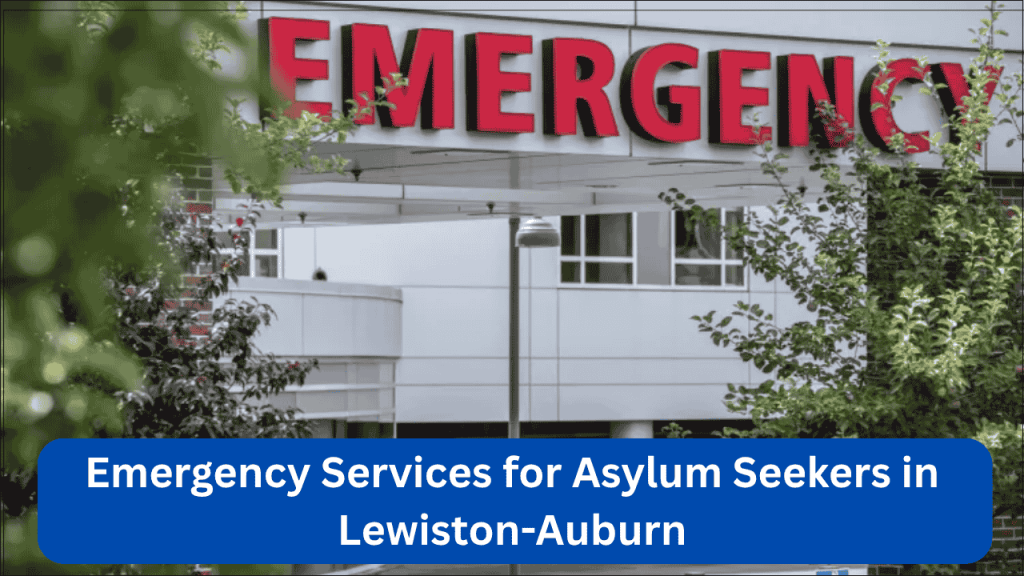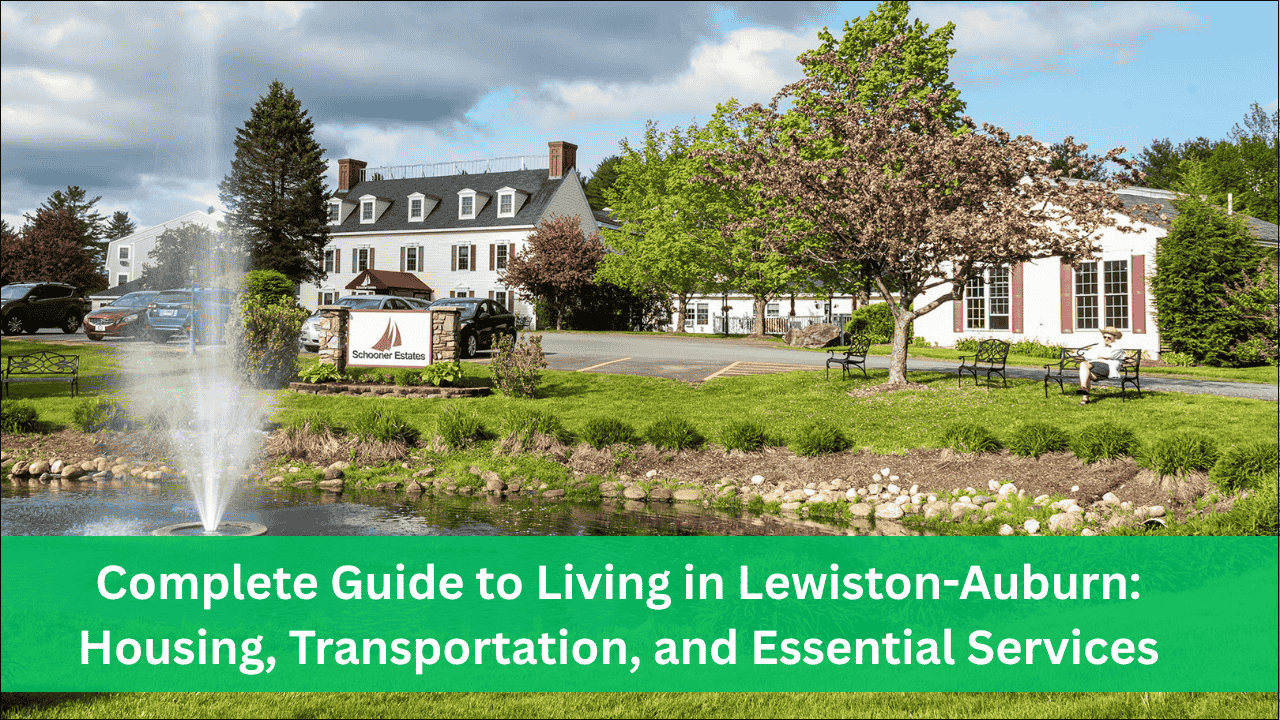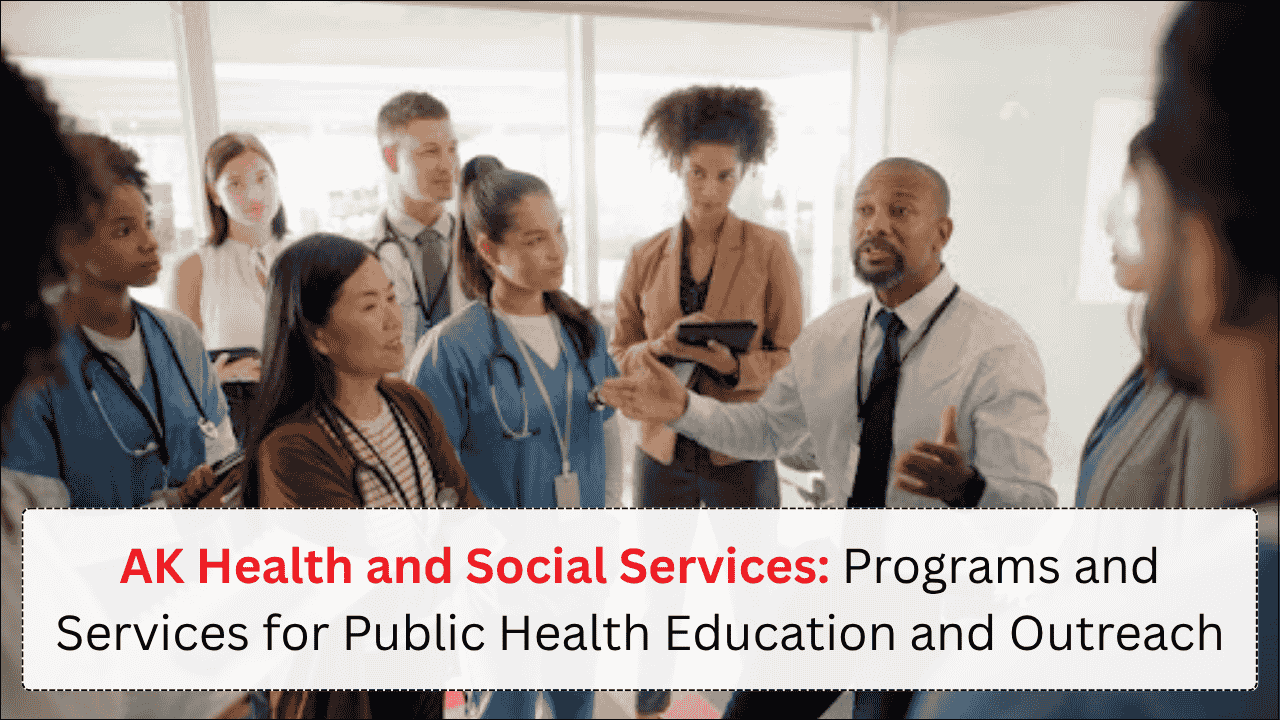
Lewiston-Auburn, a city in Maine, has seen an increase in the number of asylum seekers arriving in recent years. Many come with hopes for a safe and stable life. Emergency services in the area help them during their first weeks and months by offering shelter, health care, food, language support, and legal aid. These services are essential for survival and adjustment. Community groups, local government, and volunteers work together to provide quick help and build long-term solutions.
Table of Contents
Emergency Shelters and Housing
Emergency housing gives immediate safety and protection for asylum seekers.
- Temporary Shelters
• City-run shelters offer beds, meals, and basic hygiene services.
• Locations are often churches, school gyms, and unused public buildings.
• Families are usually kept together when possible. - Overflow Housing
• When shelters are full, hotels or host homes are arranged temporarily.
• Community donations help cover costs. - Transitional Housing
• Longer-term programs place families in rented apartments.
• Rent may be covered by local organizations or state funds.
Healthcare Services
Health is a top concern for asylum seekers who may arrive with untreated conditions.
- Free Clinics
• Organizations like B Street Health Center and Community Clinical Services provide basic care.
• Services include check-ups, treatment for illnesses, and referrals. - Emergency Room Access
• Hospitals like Central Maine Medical Center provide 24/7 care for serious medical needs.
• No one is turned away due to immigration status. - Mental Health Support
• Counseling is offered to help manage trauma, anxiety, or depression.
• Providers offer interpretation to assist non-English speakers.
Food and Nutrition Support
Nutrition is essential for people arriving after long and stressful journeys.
- Food Pantries
• Organizations like Trinity Jubilee Center provide free groceries weekly.
• Ethnic foods are offered to respect cultural diets. - Hot Meals
• Daily meals are served at shelters and drop-in centers.
• Community churches host free meal programs. - WIC and SNAP Enrollment Help
• Assistance is given to help eligible families apply for benefits.
• Volunteers help with paperwork and translation.
Legal and Immigration Assistance
Asylum cases are complex and require proper legal help to move forward.
- Legal Aid Clinics
• Groups like Immigrant Legal Advocacy Project (ILAP) offer free or low-cost help.
• Services include filing asylum applications and preparing for interviews. - Know Your Rights Sessions
• Community centers organize training about U.S. immigration laws.
• Flyers are translated into Somali, French, Arabic, and other languages. - Help with Documents
• Legal workers help asylum seekers get ID cards, work permits, and medical records.
• Accurate records are critical for asylum cases.
Language and Communication Help
Language access is essential for participation and understanding in daily life.
- Interpreters
• Volunteers and paid interpreters help in medical, legal, and school settings.
• Phones with interpreter apps are used in emergencies. - English Classes
• Public libraries and adult education centers offer free ESL courses.
• Classes focus on survival English and job vocabulary. - Translated Information
• Flyers, signs, and websites are available in major languages spoken by newcomers.
• Clear communication prevents confusion and errors.
Employment and Job Support
Work brings dignity, income, and self-sufficiency for asylum seekers.
- Job Fairs
• Events connect newcomers with local employers.
• Some employers are open to hiring asylum seekers with pending cases. - Work Permit Assistance
• Staff at help centers explain how to apply for work authorization.
• Delays are common, and follow-up support is offered. - Job Training
• Training in food service, janitorial work, and healthcare is provided.
• Childcare is available during classes.
Education and Youth Programs
Children and young adults need stable learning environments during transition.
- School Enrollment Help
• City staff assist parents in registering children at local public schools.
• School liaisons speak several languages. - Tutoring and Homework Help
• Local colleges and youth centers run tutoring programs.
• Volunteers provide after-school help. - Early Childhood Programs
• Head Start and Pre-K programs are open to asylum-seeking families.
• Transportation is often provided.
Public Transportation and Mobility
Getting to appointments and services is critical for asylum seekers.
- Bus Passes
• Free or discounted passes are given by nonprofits and the city.
• Bus routes connect shelters, clinics, schools, and job sites. - Volunteer Drivers
• Rides are arranged for hospital visits or court appointments.
• Background-checked drivers coordinate with help centers. - Bicycle Donation Programs
• Community groups give out bikes with helmets and locks.
• Bikes offer independence for short trips.
Community Engagement and Support
Inclusion builds confidence and reduces isolation for asylum seekers.
- Welcome Centers
• Drop-in spaces provide coffee, information, and friendly faces.
• Staff answer questions and guide newcomers through systems. - Support Groups
• Peer groups help people share experiences and reduce stress.
• Language-specific groups meet weekly. - Cultural Events
• Events celebrate traditions and allow sharing of music, dance, and food.
• Local schools and churches host multicultural fairs.
Key Emergency Services and Providers
| Service Type | Example Providers in Lewiston-Auburn |
|---|---|
| Shelter and Housing | Lewiston General Assistance Office, area churches |
| Healthcare | Central Maine Medical Center, Community Clinical Services |
| Food Support | Trinity Jubilee Center, Salvation Army Food Pantry |
| Legal Aid | Immigrant Legal Advocacy Project (ILAP), Pine Tree Legal |
| Language Assistance | Lewiston Adult Education, Literacy Volunteers |
| Employment Help | CareerCenter Auburn, New Mainer Community Collaborative |
| School Support | Lewiston Public Schools, Androscoggin Head Start |
| Transportation | Citylink Bus Service, local bike donation groups |
| Community Integration | Welcoming Immigrants Network, Multicultural Center |
Parting Insights
Emergency services in Lewiston-Auburn form a strong support system for asylum seekers during difficult times. Housing, food, medical care, and legal aid are just the beginning. Long-term support through education, job training, and cultural integration helps people find their place in the community. Local efforts and shared compassion create a welcoming environment where asylum seekers can begin new lives with hope and dignity.





